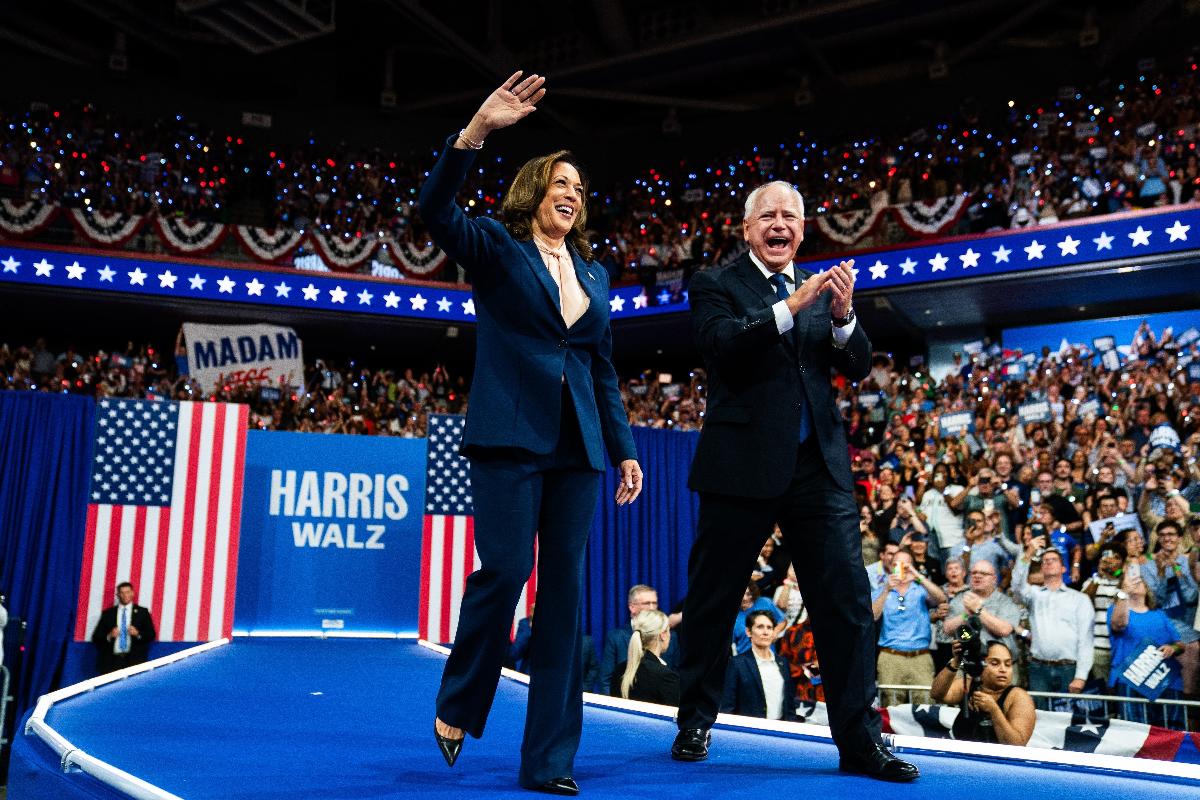
Harris and Walz adjust media strategy following vice presidential debate
Gov. Tim Walz (D-MN) is adjusting his media strategy after what some considered a lackluster performance in Tuesday’s vice presidential debate. Following a debate that some strategists described as "uneven," Walz is embarking on a media blitz, including a campaign bus tour across Pennsylvania, with plans to visit Cleveland, Cincinnati, and other locations for fundraisers and rallies. This increased public activity marks a shift from his previous approach, in which he limited his media engagements.
In the past weeks, Walz, the Democratic vice presidential candidate, had conducted only a few media appearances, and his performance during the debate seemed to suffer as a result. Despite a strong start, he struggled when asked about foreign policy, which left some viewers with the impression that he was unprepared. Strategists noted his "deer-in-the-headlights" moment and the lack of effort to steer the conversation, which contributed to a perception of weakness.
Walz’s debate performance contrasted with that of his Republican opponent, Sen. J.D. Vance (R-OH), who appeared more comfortable on stage. Some political analysts pointed out that Walz, known for his previous accessibility to the press, lacked the same presence in the debate. Critics speculated that his lack of media exposure in the lead-up to the debate may have contributed to his stilted performance.
The Democratic campaign has indicated that Walz will make up for lost time by participating in interviews, including two TV appearances, and engaging in multiple digital interactions. He is also scheduled to appear on a popular podcast and engage with local and Hispanic media outlets.
Vice President Kamala Harris, who also avoided extensive media engagements until recently, is preparing for a sit-down with 60 Minutes, marking her first major interview in some time. Some observers have noted a similarity between the cautious media approach taken by Harris and Walz's limited visibility.
Walz’s media shift comes as both candidates try to solidify their positions in the race. The Harris campaign is focusing on undecided voters in battleground states, with recent internal polling showing Walz in a favorable light, especially after the debate. Campaign staffers have highlighted a moment when Vance refused to acknowledge the outcome of the 2020 election, which could resonate with voters concerned about democratic values.
As the campaign continues, Walz’s enhanced media strategy will likely play a key role in his efforts to appeal to a broader electorate ahead of the upcoming election.
Stichworte







